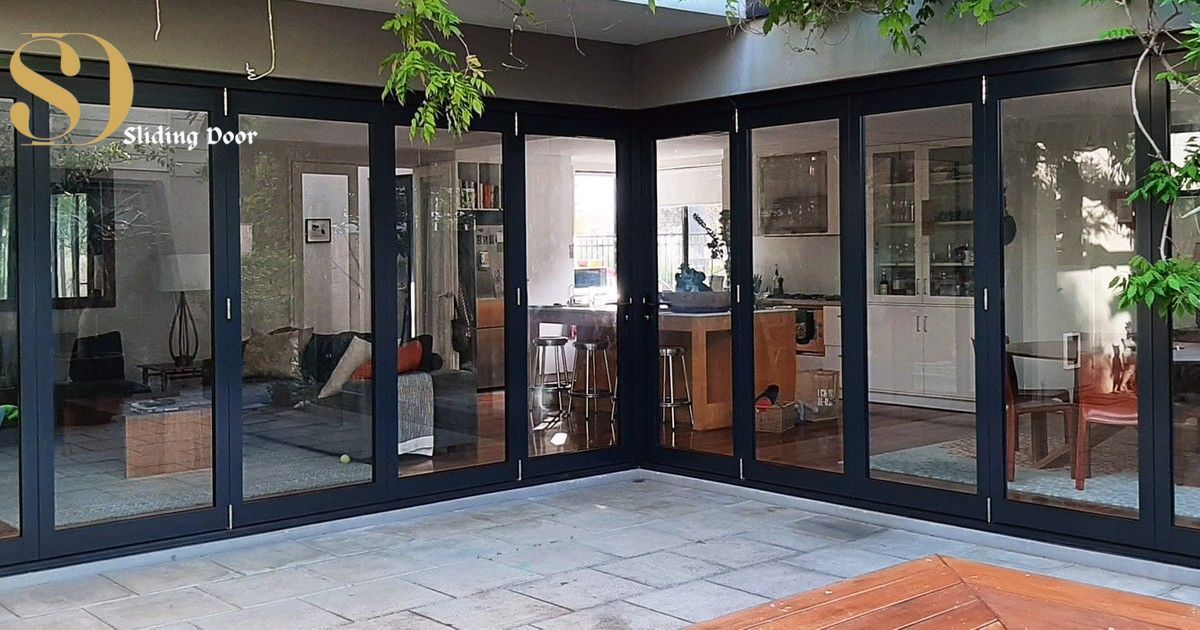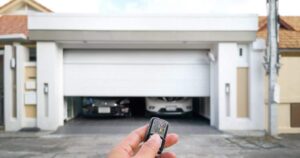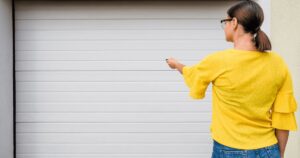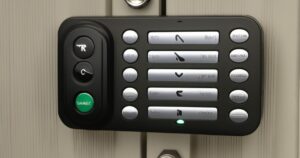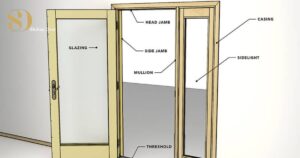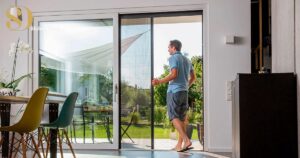Most sliding doors use tempered glass which is a type of safety glass. Tempered glass is treated to be stronger and shatter into small less harmful pieces if it breaks. This enhances safety and durability in sliding doors applications.
Find out What type of glass is used in most sliding doors. Dive into the world of tempered glass ensuring safety and durability for your sliding door experience.
Most sliding doors use tempered glass for safety and strength. This type of glass is treated to break into small less harmful pieces. So when it comes to sliding doors it’s often tempered glass in action.
What are Glass Doors?
These shed light and allow you to see through them. These doors can be used as room dividers or entrance doors within buildings. Some slide open while others swing on hinges.
Glass doors including sliding glass doors and French doors are common in modern homes and offices. Some feature clear glass, while others offer options for privacy. Their contemporary aesthetics and capacity to usher in natural light make glass doors a popular choice.
Benefits of Installing Glass Doors
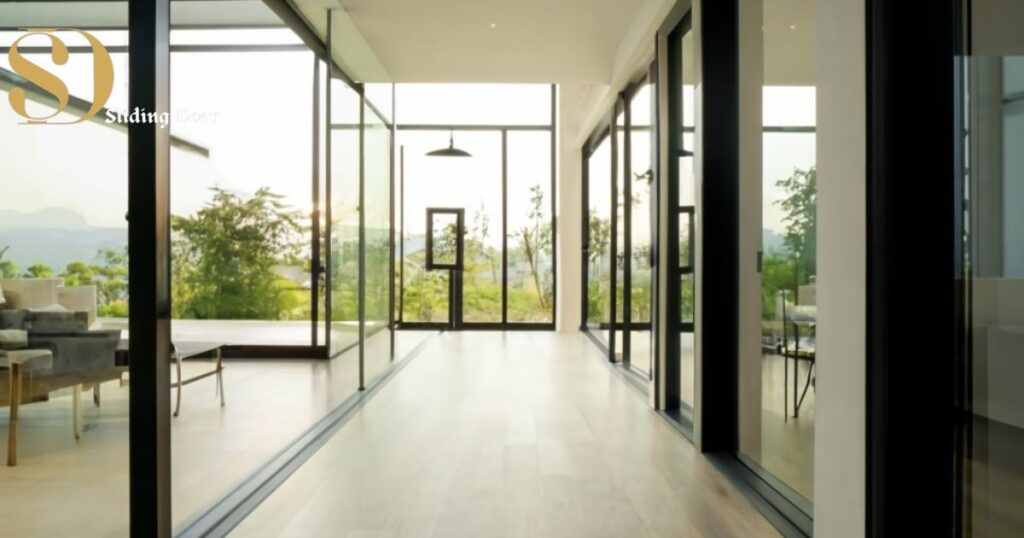
- Installing glass doors lets more natural light into your space.
- The modern and stylish look of glass doors adds beauty to your home or office.
- Glass doors provide a sense of openness that creates a visually connected environment between different areas.
- They make small rooms look bigger while making them feel more spacious.
- Sliding or French glass doors that open to outdoor spaces create a seamless connection between indoors and outdoors.
- Options like frosted or tinted glass offer privacy without sacrificing light.
- Easy maintenance and cleaning make glass doors a practical and attractive choice for enhancing your living or working space.
Types of Glass Used in Sliding Doors
There are many types of glass available nowadays. You may prefer one over the other due to functionality or simply as a matter of personal preference. The different types of glass available include:
Tempered Glass:
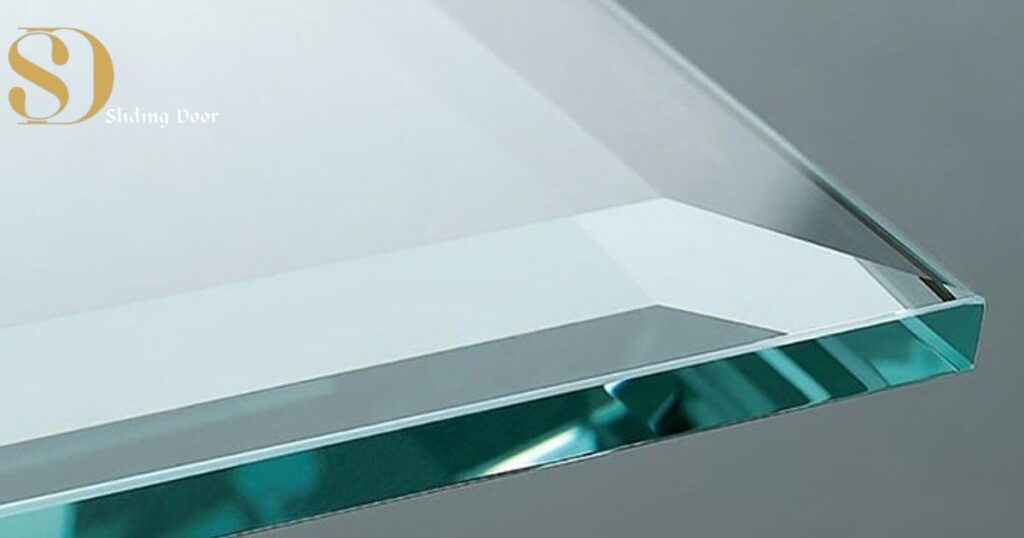
It is a type of safety glass that undergoes a specialized heat treatment process. This process involves heating the glass to high temperatures and then rapidly cooling it. As a result, the glass becomes much stronger than regular glass and breaks into small rounded pieces rather than sharp shards when shattered.
The strength and safety features of tempered glass make it a popular choice for various applications. It is commonly used in sliding doors, shower enclosures, car windows, and electronic devices. The ability to shatter into small less hazardous pieces reduces the risk of injury in case of breakage.
Tempered glass is also known for its resistance to thermal stress, making it suitable for environments with temperature variations. Overall, tempered glass is valued for its safety, durability, and versatility in diverse settings.
Laminated Glass:
It is a special type of safety glass that is commonly used in various applications. It consists of two or more layers of glass bonded together with an interlayer. These are usually made of polyvinyl butyral (PVB).
The main feature of laminated glass is that when shattered, the glass fragments stick to the interlayer, reducing the risk of injury. This property makes it a popular choice for car windshields, building windows, and other applications where safety is paramount.
Laminated glass provides effective sound insulation and protection from ultraviolet (UV) rays, making it a versatile and practical choice for a variety of architectural and automotive needs.
Energy-Efficient Glass:
It is designed to minimize heat transfer and increase insulation in buildings. This usually includes special coatings or low-emissivity (Low-E) films that reflect or absorb infrared radiation, preventing heat loss in colder climates and reducing heat gain in warmer climates.
This type of glass helps to maintain a comfortable temperature inside the house. It reduces energy consumption for heating and cooling and contributes to overall energy efficiency in homes and commercial structures.
Energy-efficient glass is a sustainable solution that not only improves thermal performance but also reduces environmental impact by reducing reliance on artificial heating and cooling systems.
Factors to Consider Before Choosing Glass for Sliding Doors
Several factors should be considered before choosing glass for sliding doors. First of all:
Transparency and Visibility:
This is an important factor when selecting glass for various applications. Transparency refers to the transparency of glass that allows light to pass through without distortion. This affects the amount of natural light in a space and contributes to an open and airy feeling. Visibility, on the other hand, considers how well one can see through the glasses.
Depending on the application, you may prefer clear glass for an unobstructed view or opt for textured or frosted glass to increase privacy. Can also allow light to filter through.
A balance of transparency and visibility is essential to choosing the right glass to meet functional and aesthetic needs in different contexts such as windows, doors, or partitions.
Safety and Security:
It is are paramount consideration when it comes to choosing glass for various applications. Tempered glass is a common choice due to its enhanced strength and safety features. In the event of breakage tempered glass shatters into small less harmful pieces reducing the risk of injury.
Laminated glass is another option consisting of layers that remain bonded even when broken providing added security. For optimal safety and security, it’s essential to assess the specific needs of the environment where the glass will be used whether it’s for windows, doors, or other installations, to ensure the right type of glass is selected.
Energy Efficiency:
This is an important consideration when choosing glass for windows, doors, and other building applications. The choice of glass can significantly affect the thermal performance of the structure. Double or triple-pane glass with gas insulation between the layers enhances the insulation. It reduces heat transfer and energy consumption for heating or cooling.
Low-emissivity (Low-E) coatings on glass help reflect infrared rays. These further improve energy efficiency by making the interior temperature comfortable. Choosing energy-efficient glass not only contributes to cost savings but also reduces a building’s environmental impact, making it a sustainable and responsible choice for modern construction.
Aesthetics:
They play an important role in the selection of glass for various architectural and design purposes. The appearance of glass can greatly affect the overall look and feel of a space. Clear glass provides an open and unobstructed view that creates a sense of transparency and spaciousness.
Stained glass can add a touch of style while also providing some level of privacy. Textured or patterned glass contributes a decorative element that offers both visual interest and diffused light.
Consideration of architectural style, interior design, and desired ambiance helps select the right glass aesthetic, ensuring that it complements and enhances the overall visual appeal of the space.
FAQ’S
What type of glass is used for buildings?
For buildings commonly used glass types include clear low-E coated and insulated glass to enhance aesthetics energy efficiency and overall structural safety.
Which type of glass is most typically used in fire doors and windows?
Fire doors and windows typically use fire-resistant glass designed to withstand high temperatures and prevent the spread of fire.
Which is a strong glass for windows?
Tempered glass is commonly used for windows as it is stronger and more impact-resistant than regular glass providing enhanced safety and durability.
What type of glass is used in glass doors?
Glass doors typically use tempered glass for increased strength and safety shattering into small less hazardous pieces upon breakage. This choice enhances both security and the overall durability of the door.
What is the best glass for main door?
The best glass for this is often tempered glass as it provides better strength, safety and durability. Decorative or textured glass can be chosen for aesthetic appeal while maintaining safety.
Conclusion
The top choice for most sliding doors is tempered glass which is known for its strong strength and safety features. Tempered glass not only increases the durability of sliding doors but also ensures that in the unlikely event of breakage, it shatters into smaller, less damaging pieces prioritizing safety. This type of glass is suitable for a variety of environments offering a balance of security and aesthetic appeal.
When deciding on the type of glass for sliding doors it is important to consider the specific needs of the space. Factors such as transparency, visibility, energy efficiency and overall aesthetics play an important role in choosing the right glass.
By looking at these considerations one can make an informed choice by ensuring that sliding doors not only provide functionality but also contribute to the overall safety and design of the living or working space.

For 8 years, I’ve been working with sliding doors. I know all the ins and outs, from how they’re designed to how they work. I’m here to share my expertise.
